Latest
Green & Seen Nature Photography Contest 2025
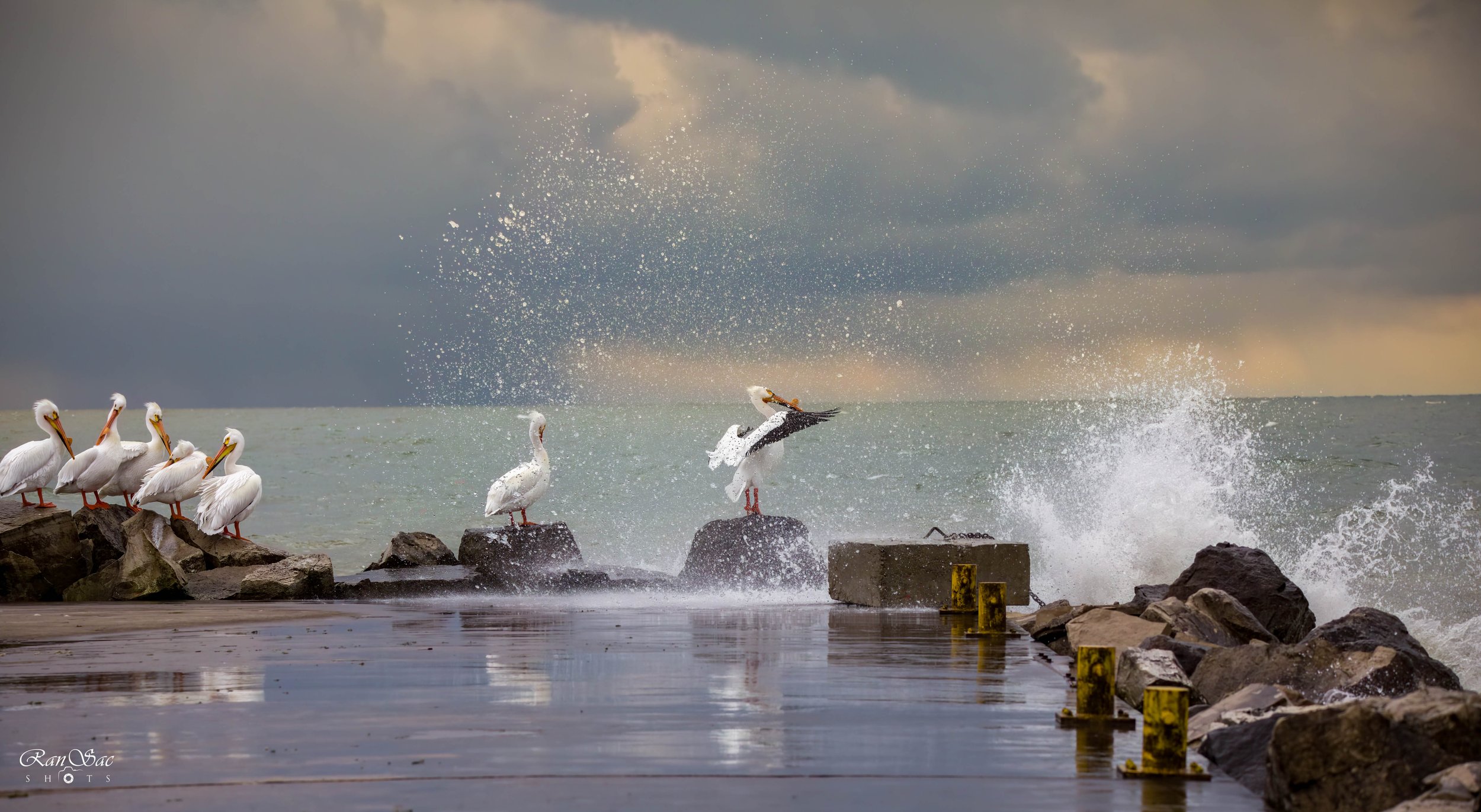
by Randolph Sinasac
American white pelicans, Colchester Harbour pier, 2024

by Mel Diotte
I took this shot at Point Pelee National Park.
To see 20 frogs hiding inside one log was amazing!
I am sharing in hopes many other people enjoy the image as much as I.

by Haley Brennan
A titmouse enjoying her seeds
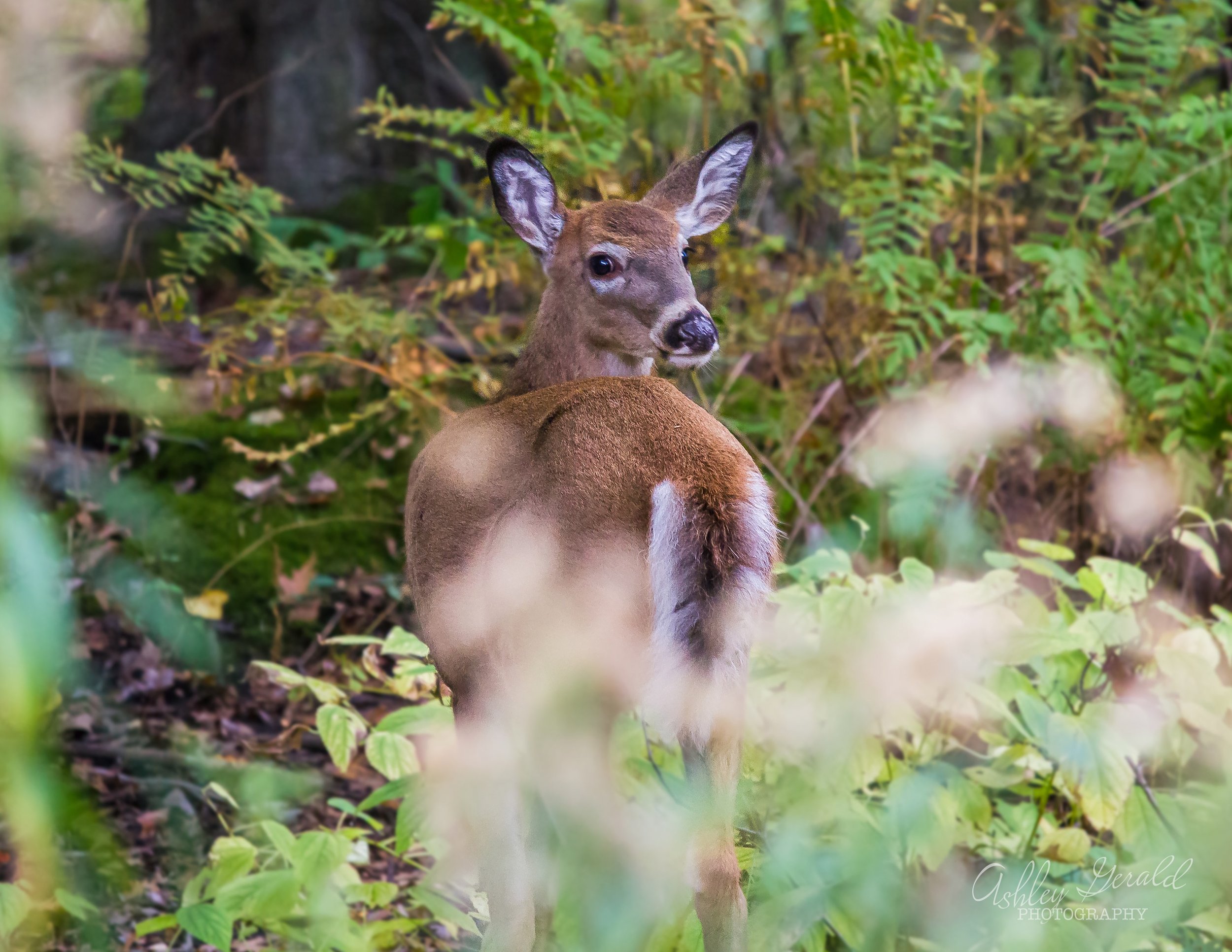
by Ashley Gerald
This photo was taken in Ojibway park. When I think about Windsor I think about all of our wildlife running around that we have the privilege to see.

by Lupita Amaya G.
We visited Holiday Beach, where we witnessed a breathtaking sunset. The sky, the water, the tall grass & bird transformed into a stunning display of golden hues like a gem, creating a magical moment that felt almost surreal. Just a beautiful afternoon that we will never forget in this beautiful place.
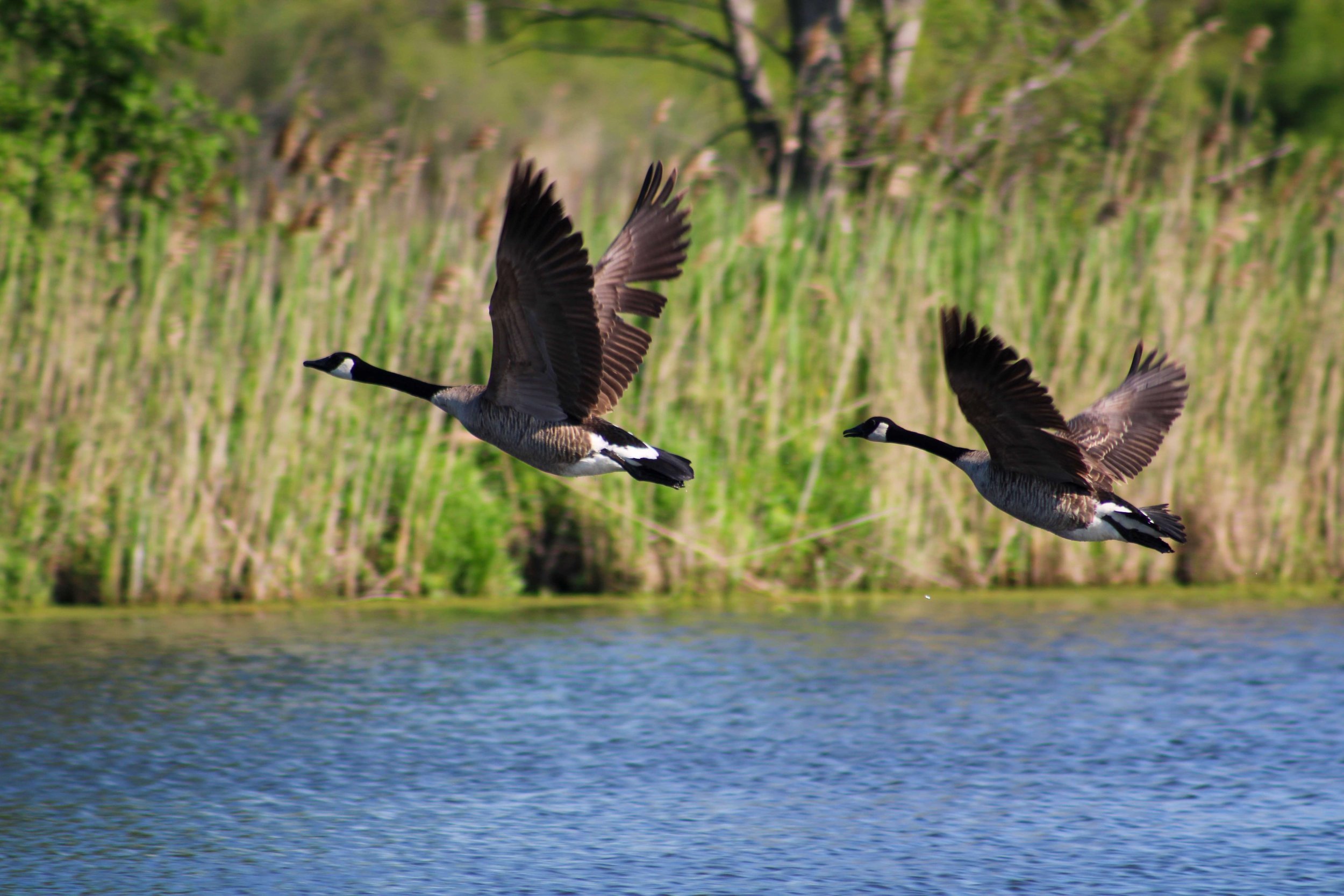
by Haley Brennan
Birds in flight

by Jennifer Wright
Great Horned Owl photographed in Kingsville, Ontario

by Jim Wright
A mute swan was sleeping on it's nest when a large group of turtles were basking in the sun on the side of the nest surrounding the swan. This photo was taken at Holiday Beach Conservation Area in Amherstburg.
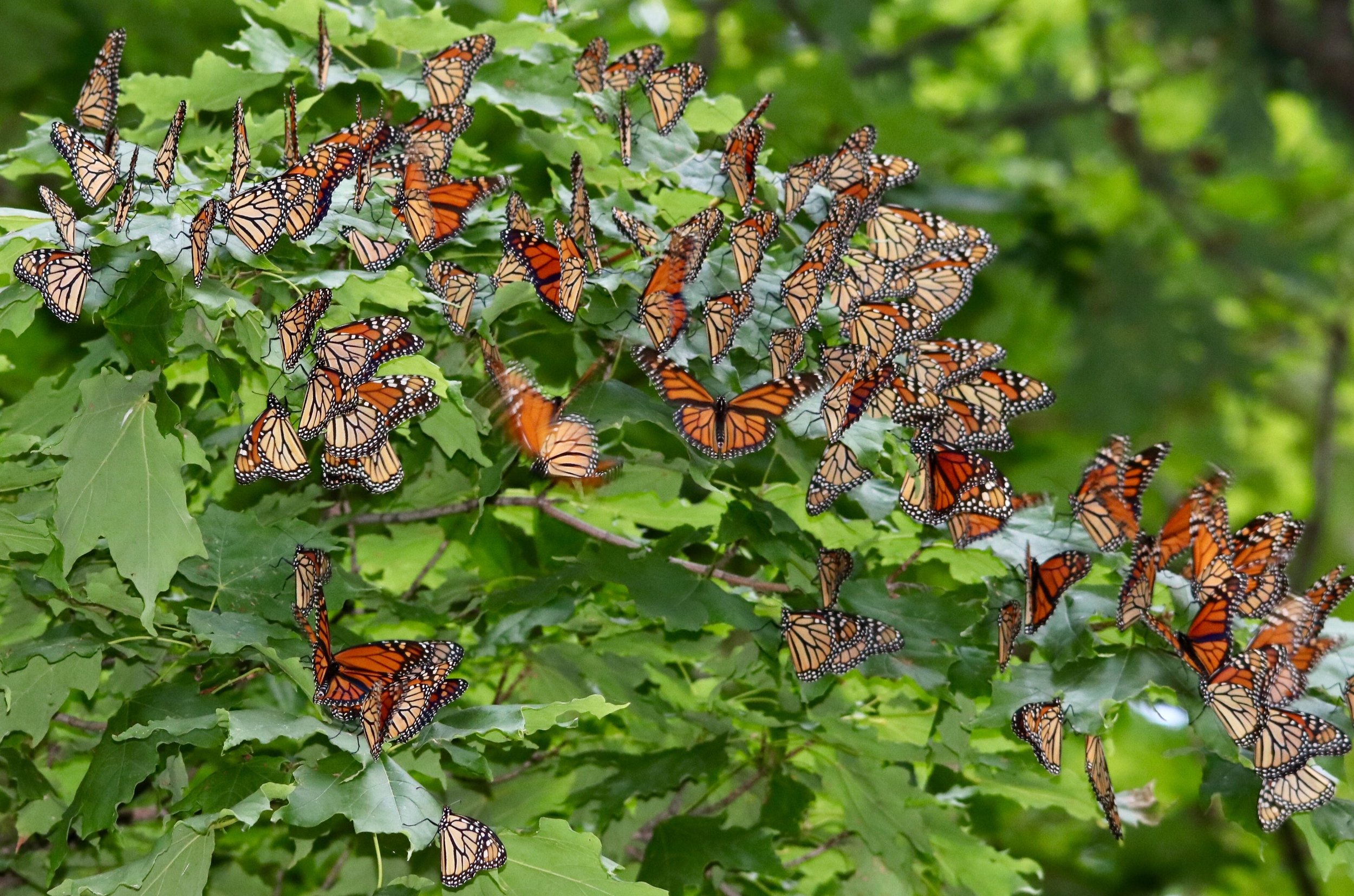
by Monica Scurr
I captured this photo at Seacliff park in Leamington. Point Pelee National Park and Seacliff park are two fantastic places to view the fall Monarch migration. The day this picture was taken, I counted 750 Monarchs in overnight roosts within the park. Quite a sight to behold!

by Jim Wright
An American White Pelican in flight over the marsh of Holiday Beach Conservation Area in Amherstburg.

by Allan Cruickshanks
Taken near Cedar Creek Conservation area in Essex County

by Allan Cruickshanks
Taken at sunset in Lakewood Park, Tecumseh

by Rebecca Dandach
My husband and I were out for a drive in Amherstburg and I immediately needed him to pull over so I could take a photo of these four birds all together. The photo features a mute swan, a great blue heron, a great egret, and a Canada goose.
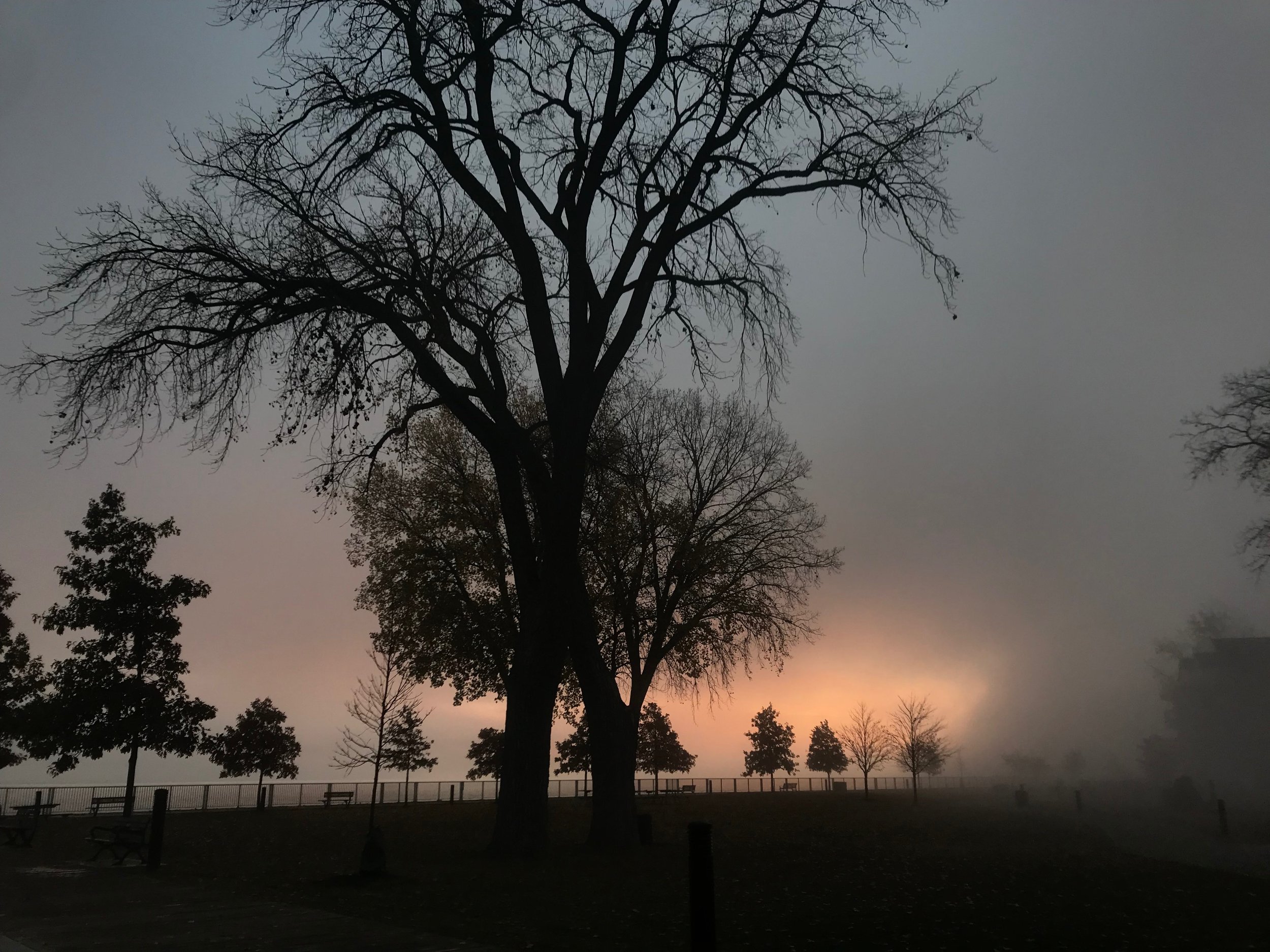
by Cathy Chase
Foggy sunrise taken at Lakewood Park North in Tecumseh.

by Cindy Zimmer
Beautiful sunrise in the fog over the farm field in Essex.

by Randolph Sinasac
Osprey hovering over potential prey.
April 2025, Big creek watershed Amherstburg.

by Molly Moroz
Great owl watching for his prey

by Julie Gagnon
I took this picture of a Monarch butterfly nectaring on a New England Aster during an evening walk around the Blue Heron ponds and hill in east Windsor.

by Stefano Nicola
Old Boblo Island dock - Amherstburg. I always thought it would’ve been cool to take a picture of the dock on a foggy morning. During a foggy week end I finally got the chance to stop there and was rewarded with an interesting scene.
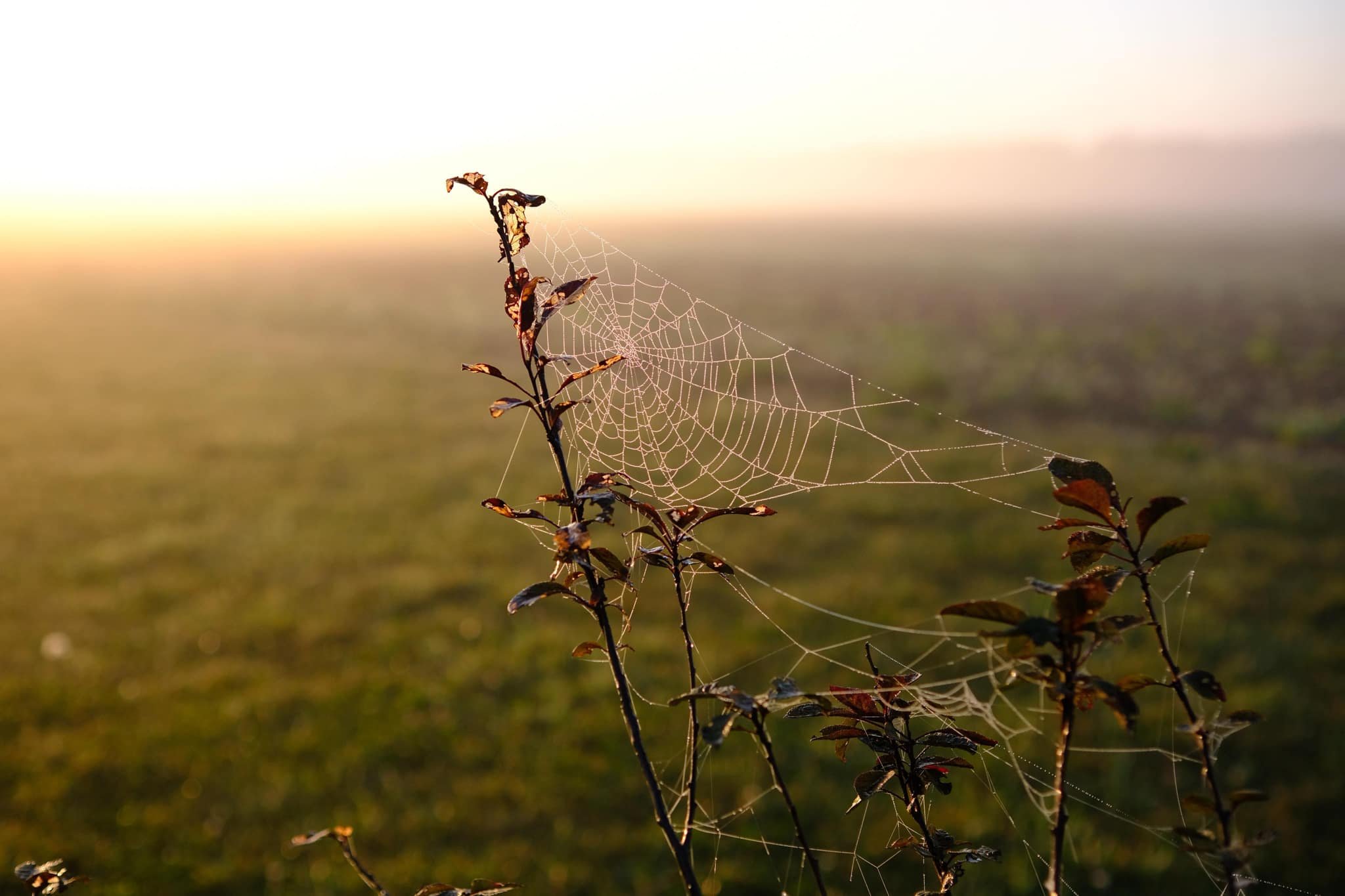
by Stefano Nicola
Essex County - driving early in the morning, I stopped by a field to appreciate a beautiful sunrise. I noticed the spider web, illuminated by a shaft of golden light and had to snap a shot !

by Mike Teves
Sunset shines through soy bean pods in Harrow, Ontario.

by Ashley Gerald
The name and photo has a lot of meaning behind it for someone who grew up in the east side of Windsor. Riverside neighbour to be exact. This spot is where Abar’s Tavern use to before it was demolished in 2016.

by Molly Moroz
A female Cardinal in the winter season

by Jennifer Wright
Blue Heron fishing for its next meal
Photographed in Cedar Creek

by Julie Gagnon
A few years ago, I was at Ojibway Park, roaming through the woods. I noticed the rays of sunlight filtering through the trees in a beautiful manner. When I got home, and took a closer look at my photos, I realized the light in this photo almost seems to form the shape of a spirit!

by Mike Teves
A rainbow shines through the silhouette of a deciduous tree in a harvested corn field in Harrow, Ontario.

by Cindy Zimmer
Vibrant Magnolia tree in full bloom. Belle River, Ontario.
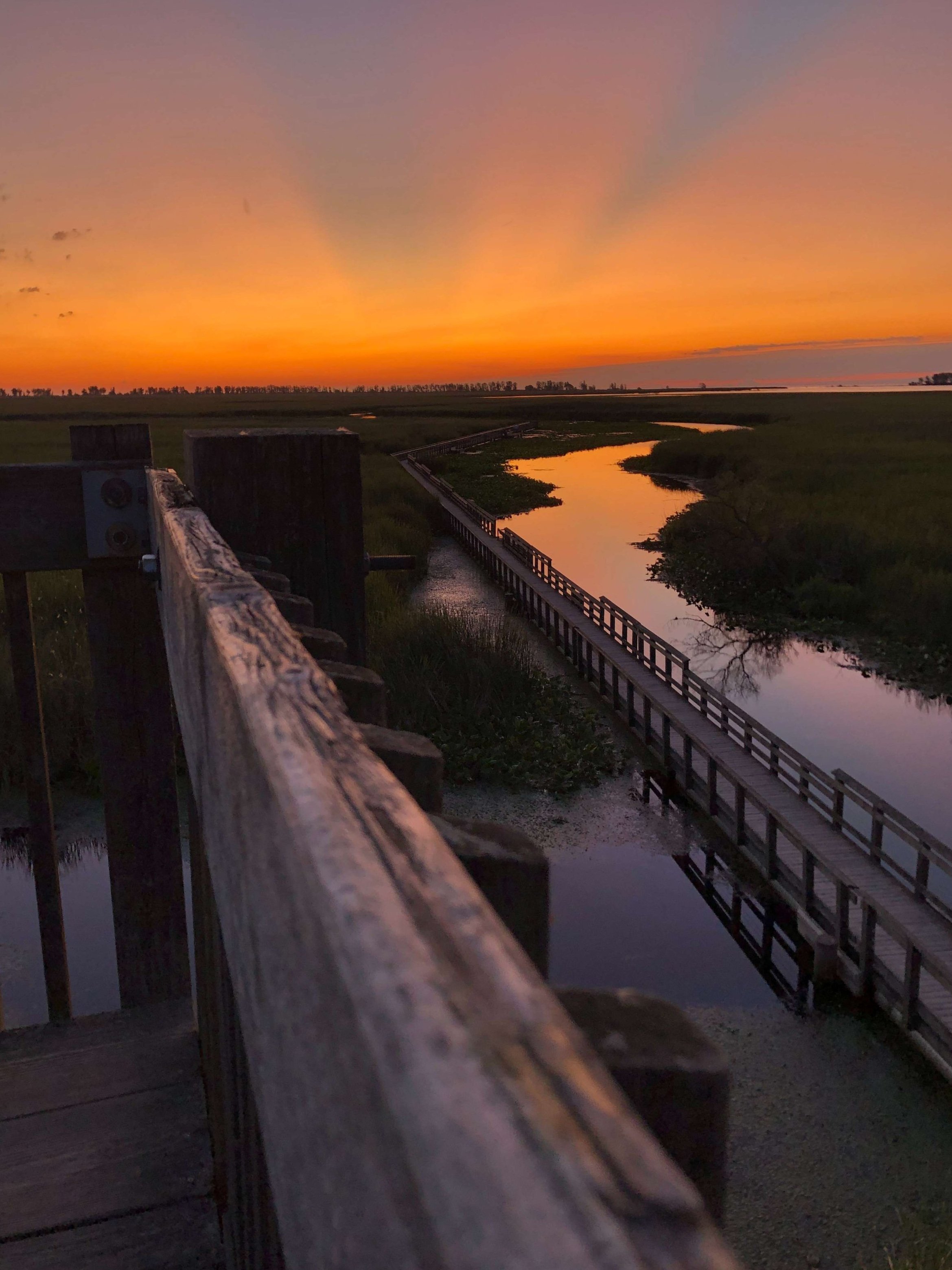
by Keri Kaufmann
Early morning sunrise at Point Pelee- specifically the boardwalk.
Nothing like a morning before the world wakes up to see the sun rise above the horizon and to welcome in the new day.

by Karson DeGoey
Out for Saturday afternoon drive we came across a farmer's field along Mersea Road 6, Wheatley full of Canola plants.

by Lupita Amaya G.
What a delightful experience we had recently during a walk in the Black Oak Prairie Heritage Park, I went with a couple of friends to this amazing place. We spent the afternoon taking photos of vibrant flowers, towering trees, and various birds while enjoying each other's company.
As we reached the end of the path in the woods, we were greeted by an incredible view. There, a young man sat on the ground, seemingly meditating and fully immersed in the serene atmosphere. It provided us all with a moment of tranquility amidst our lively chatter.
As dusk approached, we made our way back, reflecting on our amazing time together in this great place.
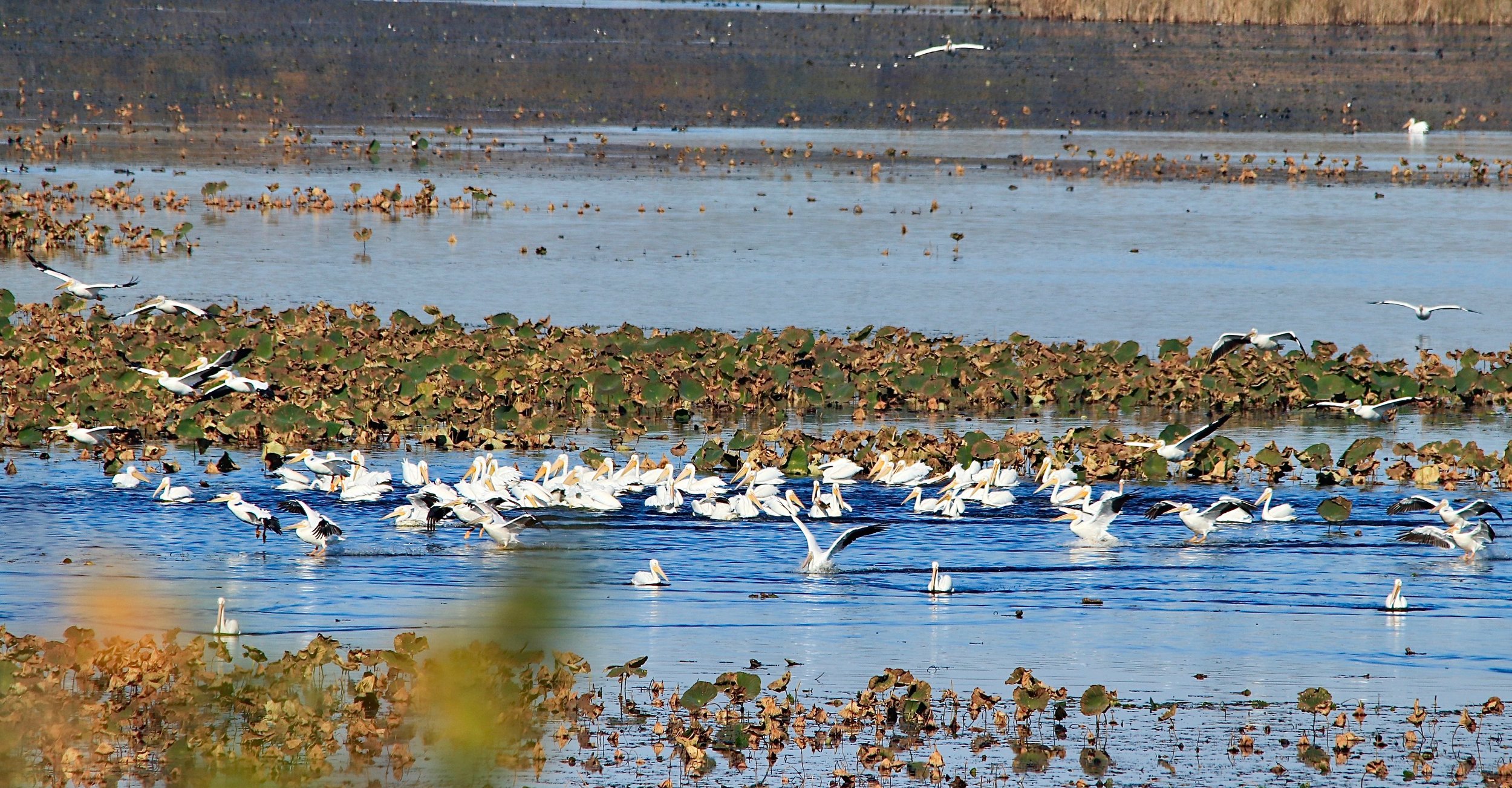
by Monica Scurr
This picture is of American White Pelicans gathering during fall migration at Holiday Beach Conservation Area in Amherstburg. On this particular day, it was estimated that over 500 pelicans were in the marsh. Holiday Beach is an incredible spot to bird watch-and during the fall migration there is a dedicated group of bird counters present on the hawk tower to record migrating species, answer questions, and let you look through their spotting scopes. Truly a gem of Essex County!

by Karson DeGoey
While canoeing through the marsh at Point Pelee's Boardwalk I captured this photo of a single white waterlily on the edge of the cattails.
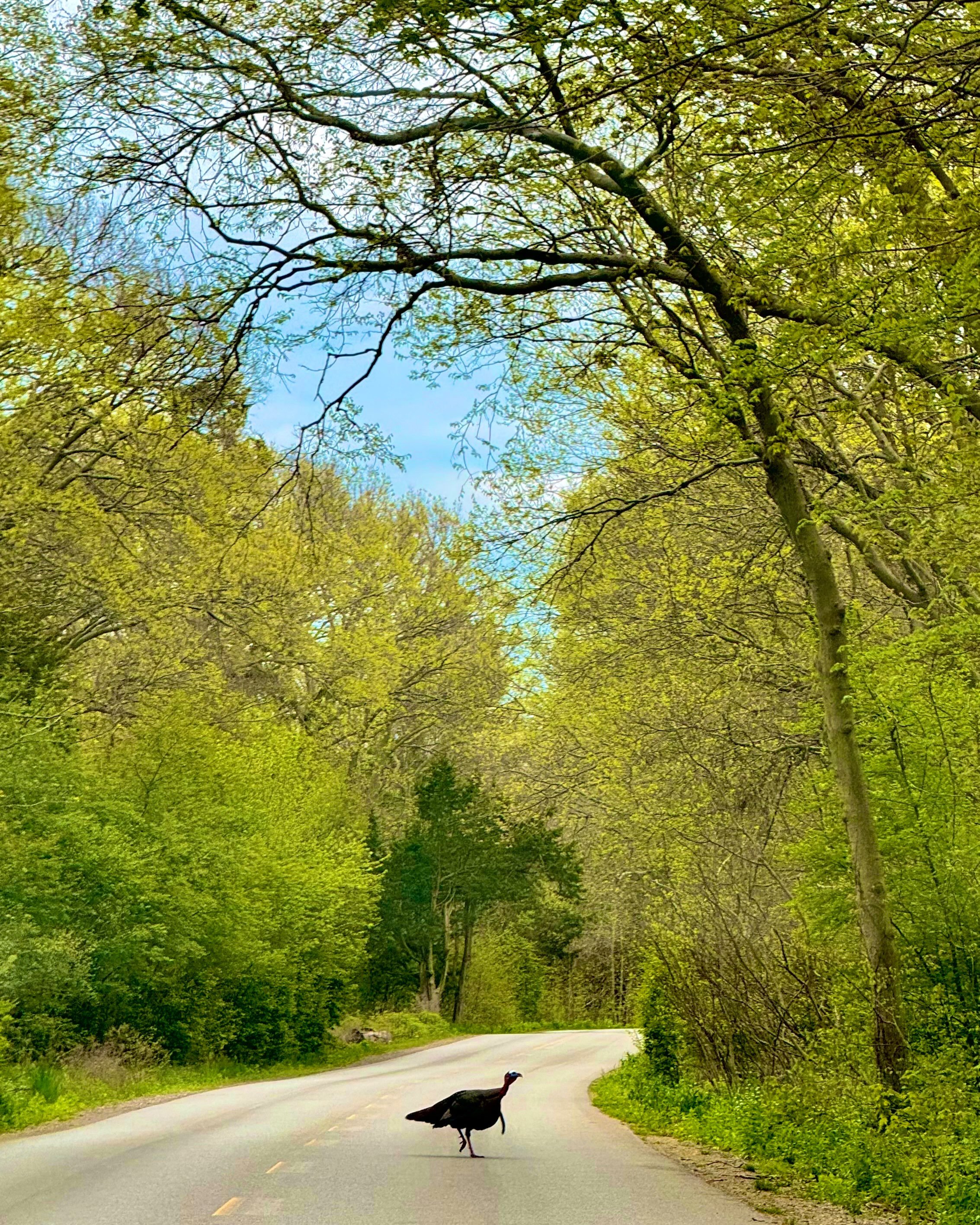
by Zeel Parmar
Captured this photo early morning. A wild turkey walks gracefully across a peaceful road surrounded by green trees somewhere between Windsor and Essex. A simple, peaceful reminder of the wildlife that shares our spaces. Nature doesn’t ask for permission to exist, it simply reminds us to witness, to respect, to wonder.

by Nisreen Jabr
This photo was taken at my front yard. I love capturing sunsets. This one was a breathtaking sunset where the sky is painted in vibrant hues of pink, purple, and orange. The pinks blend seamlessly into purples, creating a soft gradient that stretches across the horizon. The oranges add a warm glow, casting a golden light over everything below.
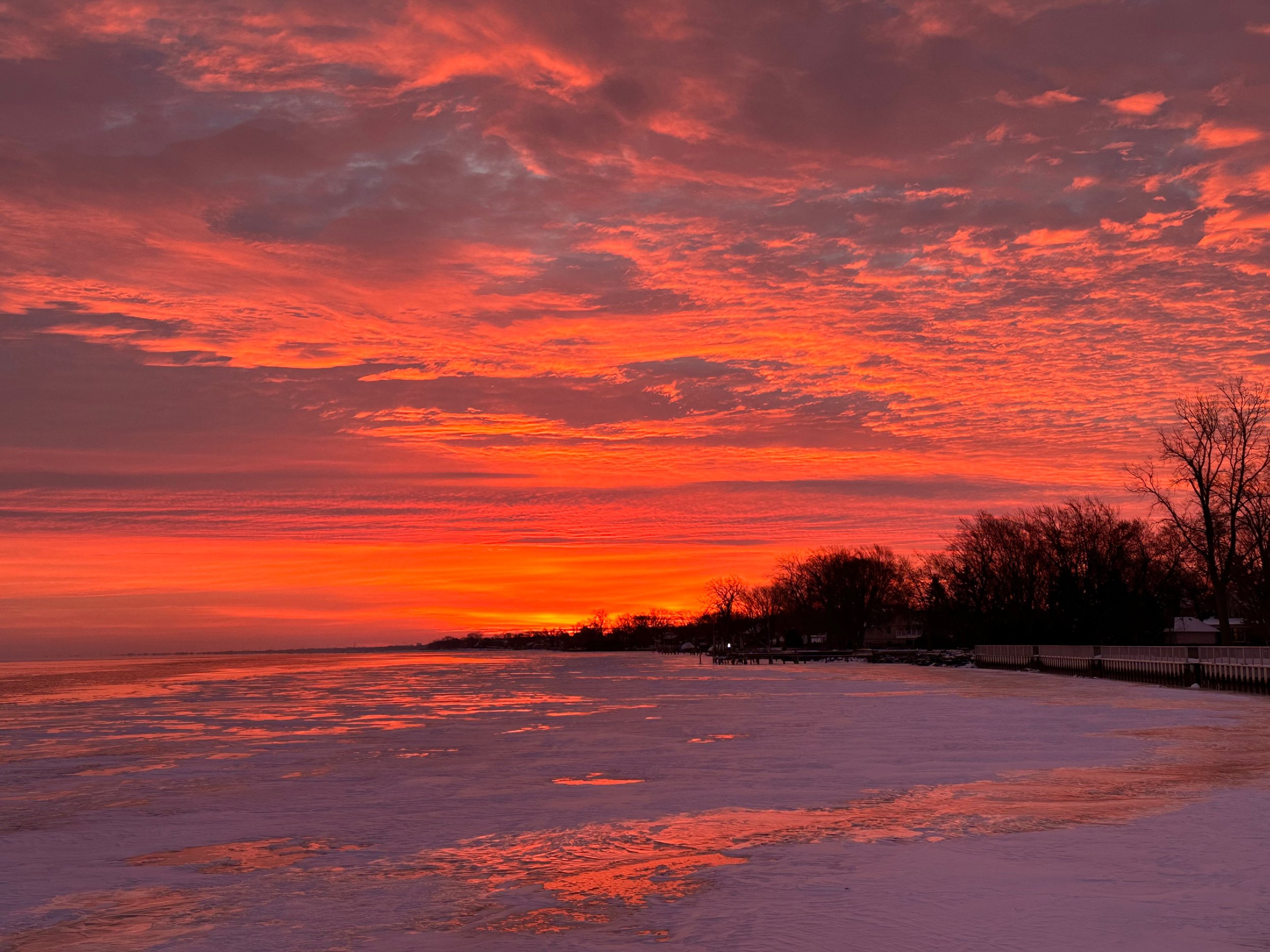
by Cathy Chase
Beautiful sunrise taken at Lakewood Park North in Tecumseh during a cold icy morning.

by Nisreen Jabr
This photo was also taken at my front yard early in the morning. The rays of light smoothly making their way out behind the trees. It felt like the day is taking a fresh breathe.
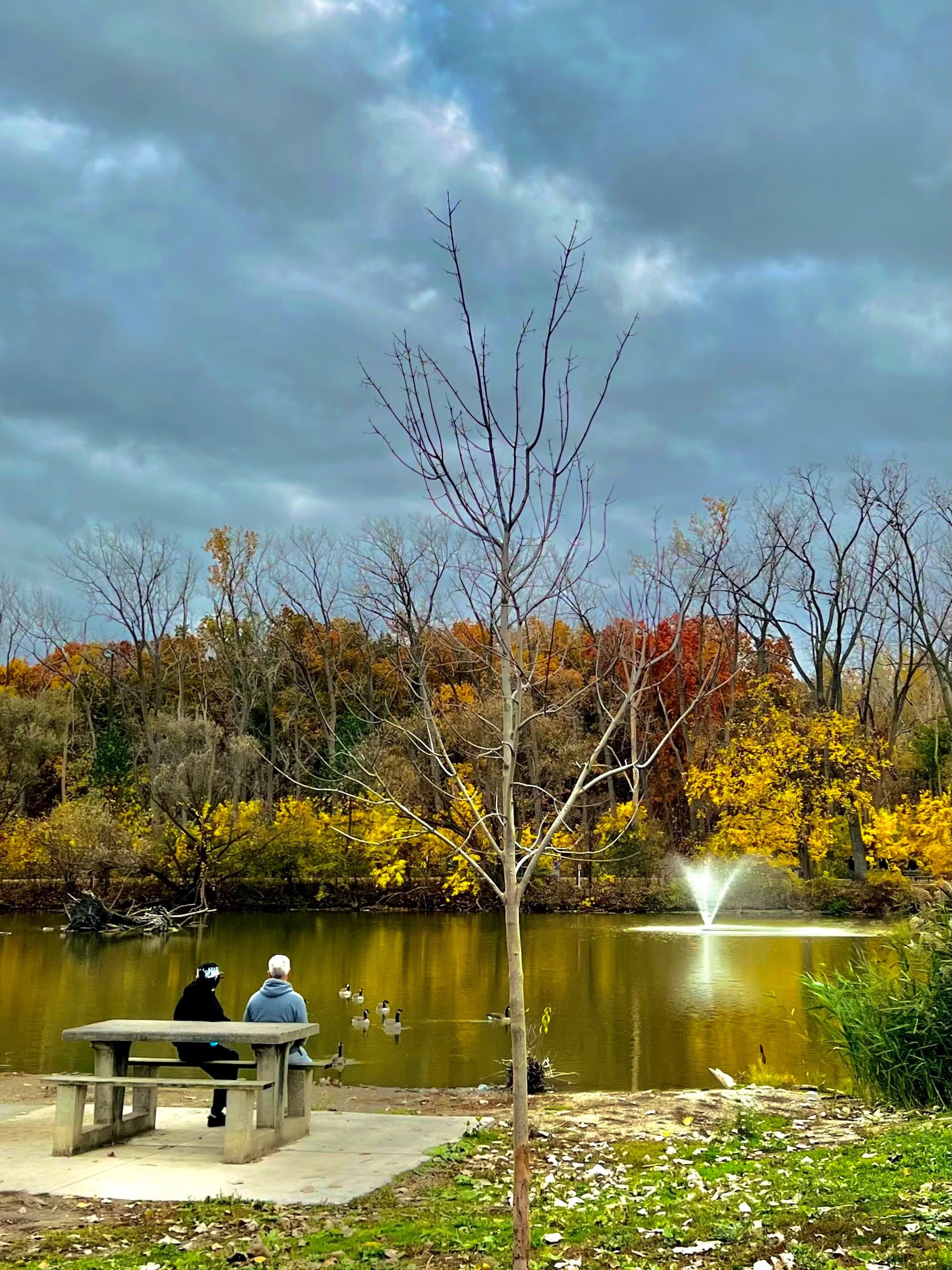
by Zeel Parmar
I went for a walk with my husband and captured this beautiful picture of two people sit by a pond, watching geese swim as colourful leaves fall at Malden Park. In Windsor, nature doesn’t just surround us, it heals us, holds us, and brings us home.
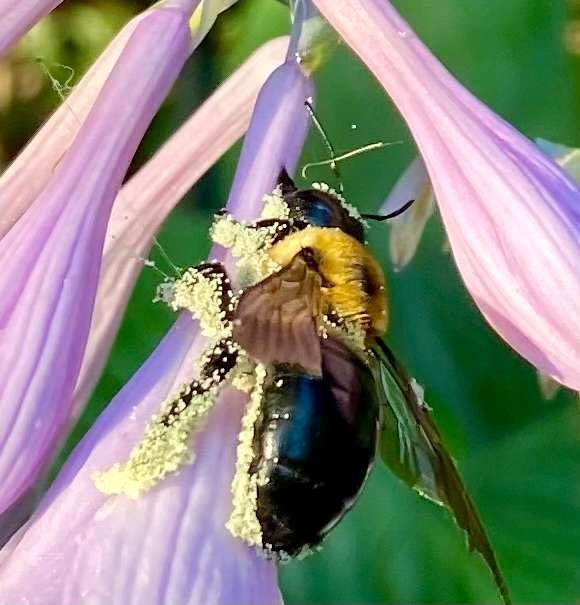
by Diane Sullivan
While sitting in my yard early one morning, I noticed this bee buzzing around a hosta plant in my garden. This amazing tiny pollinator was quickly covered in brilliant yellow specks of pollen. It is so amazing to watch nature at work!
For our first ever Green & Seen Nature Photography Contest, we invited the community to share snapshots of Windsor-Essex’s natural beauty — and you delivered! From hidden trails to vibrant wetlands, we received stunning submissions that celebrate the places we love and the planet we’re working to protect.
Explore the full gallery here >
WILD ONES in windsor-essex- OCTOBER

Blue Jay (Cyanocitta cristata)
The blue jay is an intelligent bird related to crows and other corvids and found only in North America. Male blue jays are slightly larger and a bit brighter in colour than females, which can be difficult to distinguish if only one blue jay is being seen. A better way to differentiate them would be to observe their behaviors in the wild during courtship and nesting (females incubate the eggs while males go out to find food to feed them). Blue jays like to eat insects, seeds, nuts like acorns, bird eggs (not often), and small animals like frogs. Their nesting season is from March to July, with one brood having 2- 7 eggs that can be bluish or light brown with brownish spots.

-
Fact: There is a scientific consensus that the Earth's climate is warming due to human activities, such as burning fossil fuels and deforestation.
Amongst individual scientists, 99% agree with the consensus. It’s important to note that this is far greater agreement than existed amongst medical doctors about the cancer-causing effects of smoking, when the first U.S. smoking laws first went into effect (BeforeTheFlood.org)
-
Fact: While the Earth's climate has varied naturally in the past, the current warming trend is happening at an unprecedented rate and is strongly linked to human activities.
-
Fact: While it is true that the Earth's climate has changed in the past, the current rate and magnitude of change are much faster and more severe than any natural climate change in the past.
UPCOMING EVENTS
Join Our Team
+
Join Our Team +
the word around town
The More Homes Built Faster Act sounds like the perfect solution for a housing crisis, but is it really? Passed at the end of 2022, Bill 23 aims to build 1.5 million homes within 10 years in response to our current difficult housing situation... and will sacrifice our environment in the process. While some aspects of the Bill are positive, there are fundamental changes proposed that have Conservationists worried. What are these changes? How do they affect the environment? Why should we be worried? And what can we do?
Our Canadian wildlife is more diverse than we might realize, especially our avian friends - the birds. Though we're used to geese, ducks, chickadees, and the like, the species in Windsor-Essex County extend far beyond that. Besides being diverse and beautiful, birds are essential parts of the ecosystem and they have immeasurable value balancing the food chain. This Fall migration season, we shine a light on the importance of birds in our region, get wrapped in raptor-talk, and cue the drumroll for the upcoming Festival of Hawks at Holiday Beach!
Most of us have grown up with the Great Lakes in one way or another—from colouring them in during geography class to swimming in them during the summer. It can be easy to take for granted bodies of water we’ve known for a lifetime. But where do the Great Lakes fit in on a larger scale and how do they function? How are they doing? And why do we need to concern ourselves with governing them? Read on to learn about freshwater access, water governance, how our Great Lakes fit into the system, as well as what we can do to shape their future in a climate change future.
How do we break the cycle of production, consumption, and demand in our communities? What do we do when we start losing our connections to each other, our relationship with nature and consequently, our time? Dane & Alley reflect on breaking their ties to systematic consumption by simply turning towards one thing connecting all of us right now : the soil.
In this article, Cameron Fioret talks to us about taking a community-first approach to tackling the urgent climate impacts in our region, allowing for inclusiveness and equity amongst the people it affects the most.
Windsor of Change is a non-profit that aims to empower the Windsor-Essex community, through education and engagement, to act and adapt to climate change and define its own unique climate action identity.
Donate now to help us continue our work
+
Donate now to help us continue our work +
popular reads
Windsor’s warmest winter in 157 years… With snow scarce this season and Spring sneaking in as early as February, 2024 has been breaking significant weather records. While some have enjoyed the unexpected warmth, many have heard alarm bells ring. How unusual is this weather? Will it be our new normal? What is causing it? What can we do? Read on to find out!
Art is often cited as a powerful tool with the ability to evoke emotion, inspire action, and educate onlookers. But can it do the same for the topic of climate change? Can it inspire us? Can it make a change? How? There is a plethora of eco-artists making a positive difference in the world, whether they're local or international. Join us in exploring their work and their impact, along with the overall effect of climate change art.
COVID-19 and climate change have one major thing in common: both are public health emergencies that exposed deep-rooted social inequities in marginalized communities around the globe. Though we're all affected by COVID-19 and climate change in one way or another, marginalized communities take the brunt of it. As climate change progresses, these equity gaps will worsen. How can we learn from the aftermath of COVID-19, and what can we do as a community to mitigate negative consequences as well as close the equity gap?
Eco-dread and climate anxiety are becoming a fast reality for many who are direct or indirect victims of climate change. This can be counter-productive in the fight against the crisis and can have profound implications. In the second and final part of our series on climate change and mental health, guest author and Policy Planner at the Town of Essex, Jeff Watson, writes about the changes we can make in our daily lives that will help with both alleviating mental health issues arising from climate change as well as climate change itself.
The conversation surrounding Canadian seniors and climate change has a very consistent tone: seniors are vulnerable. While care for older Canadians is one of the areas that we must seriously continue investing in, the focus on seniors’ vulnerability, puts them squarely in the category of passive victims. Emma Bider, draws from her work with the seniors-led group Climate Legacy, and writes about why and how institutions and agencies would be wise to include this demographic as active agents of change.






































Valentine’s Day is a celebration of all things love, but the Earth is an often overlooked part of the festivities. Much of the consumerism that happens in the name of showing love and making memorable moments also makes a lasting negative impact on our environment. Make your special day eco-friendly by opting for mindful (and local!) date ideas. Check out our list for all the things you can do with your special someone!